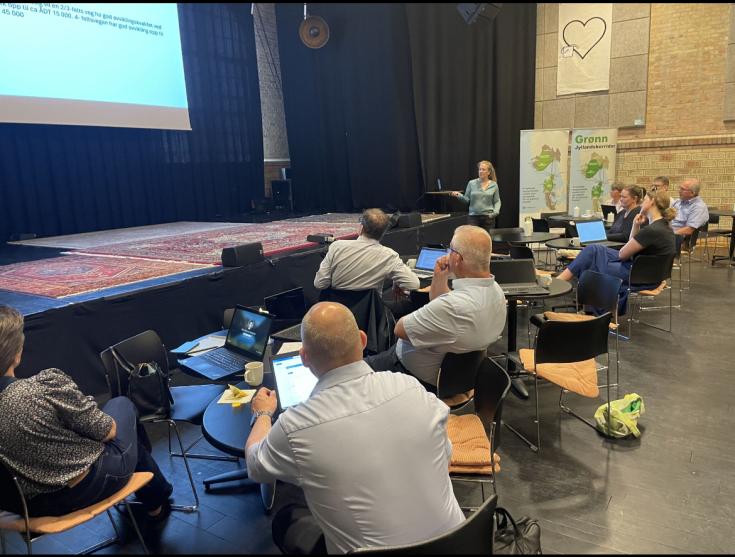RAW4RES & Green Jutland Corridor meet in Frederikshavn

Interreg Projects exchange insights: RAW4RES meets Green Jutland Corridor
Partners of the Interreg Öresund – Kattegat – Skagerrak project “Green Jutland Corridor” (Grøn Jyllandskorridor) gathered on May 15 in Frederikshavn to discuss with Frederikshavn Municipality (FHN), our RAW4RES (IE project) partner, and exchange insights on how to best showcase the Jutland Corridor's many potentials.
The Jutland Corridor is a transport network that connects South Norway, West Sweden, and Jutland (Denmark) with the European Continent. It is the most important main road for ensuring the sustainable transport of recyclable materials across EU countries, from Northern to Southern Europe. The significant daily transport of goods and passengers fosters growth and development but also necessitates sustainable solutions to reduce CO2 emissions.
RAW4RES partner, FHN, delivered a presentation to a total of 27 Green Jutland Corridor project partners (13 Norwegian and 14 Danish) who are working to create a sustainable, efficient, and multimodal transport infrastructure in Northern Scandinavia. The discussions mainly focused on the relationship between green trans-European transport infrastructure and the green transition, particularly concerning the transport of recyclable materials across Nordic borders. Through this process Green Jutland Corridor partners gained insights into FHN’s work with raw materials and recycling within the context of the Interreg Europe project RAW4RES.
FHN highlighted that ensuring sustainable access to critical raw materials is paramount for Europe's green transition and the retention of European jobs. Recycling critical and secondary raw materials is one way EU countries can reduce dependence on these materials from outside the EU. Ensuring sufficient volumes and free movement of recyclable materials across EU borders is essential for developing a circular economy and creating business models for the recycling industry.
Green Jutland Corridor partners, on their end, presented 5 clear aims:
- To strengthen the development of fossil-free (heavy) transport on land and at sea (shipping).
- To enhance the development of sustainable infrastructure (charging stations, biofuel stations, etc.).
- To facilitate the green transport of renewable energy fuels and recyclable materials across borders in the north and south.
- To support Europe’s goal of transport sector emissions neutrality by 2050, as per the Paris Agreement.
- To serve as a sustainable highway connecting Scandinavia with the rest of the European continent.
The meeting also featured a tour of the harbor, organized by Frederikshavn Municipality, in excellent weather, where participants gained insight into life as a port city and the importance of ports as growth drivers.
